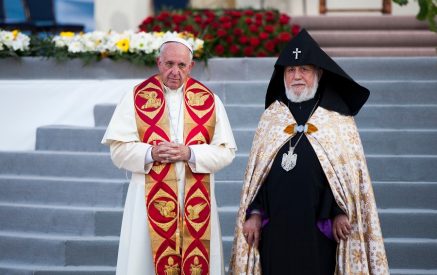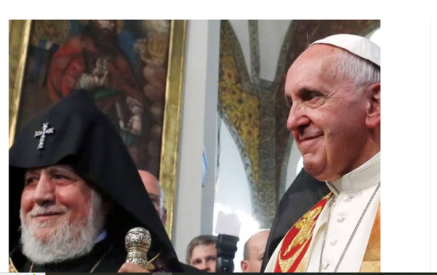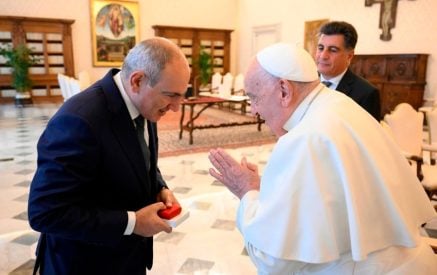“ACNIS ReView from Yerevan”. The most natural question that arose immediately after the passing of Pope Francis of Rome on Easter Monday, at the age of 88, is about his likely successor: who will replace him? What truly matters, however, is not just the identity of the new Pope but his worldview—his stance on social and moral issues. With 1.3 billion Catholics worldwide, there are now fervent discussions about various aspects of spiritual and social life. The values and perspective of the newly elected Pope will undoubtedly provide insights into the trends and challenges shaping global politics.
Historically, there has always been a connection between the Popes of Rome and global processes, though the relationships between spiritual leaders and political authorities have often been uneasy. Recently, tensions between Pope Francis and the U.S. administration underscored this dynamic. Disagreements arose, particularly between Vice President JD Vance and the Pope. Pope Francis condemned the events in Gaza, describing them as genocide, and was openly critical of President Trump’s policies, which he believed lacked compassion for humanity.
JD Vance, on the other hand, held starkly opposing views. He argued that immigrants posed problems for U.S. citizens, claiming that many newcomers included drug dealers, criminals, and other “hostile elements.” “For the sake of our citizens, refugees must be deported,” Vance declared. Notably, Vance, who was once a follower of the Protestant Church, has since converted to Catholicism and now plays a significant role in reshaping the U.S. Catholic community, which numbers around 50 million.
In an interesting twist, Pope Francis met with Vice President Vance shortly before his death. Although the Pope was in a critical state and the meeting was largely symbolic, a substantive discussion did take place between Vance and Vatican Secretary of State Pietro Parolin, who supported the late Pope’s positions on issues such as fostering harmony between Christians and Muslims. Meanwhile, the current U.S. administration, relying on Zionist Christians and Evangelicals, pursues a contrasting policy. Trump has stated directly that Muslims should be expelled from Palestine on religious grounds, asserting that “God gave that land to the Jews to build the Third Temple.”
Read also
This brings us back to our central question: who will be the next Pope of Rome? Will the new Pope challenge the U.S. administration’s policies on Christian-Muslim relations, or will he adopt a more conservative stance? These questions are especially significant for us, as Armenia finds itself in a volatile region where the threat of religious conflict looms large. Consequently, the church’s strategic approach to these issues is a matter of critical importance. Let us also remember that Armenia has communities in Iran, the Middle East, and other regions that could be impacted by these developments.
Finally, this leads us to a broader concern: to what extent do Armenian authorities recognize:
a) the church’s increasing role, b) the risks of a growing divide between the Armenian Apostolic Church and the government, c) the destructive narratives of divisions between Armenia and Artsakh or Armenia and the Diaspora, and d) the deepening crisis of national identity? Unfortunately, the answers to these questions are disheartening.
The Armenian Center for National and International Studies
























































